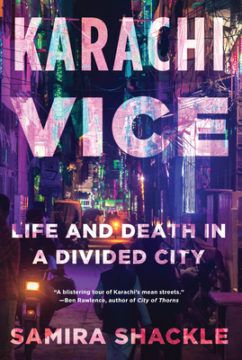Samira Shackle in Literary Hub:
 I moved to Karachi in the aftermath of riots, arriving to smashed shop windows and the smell of burning tires. It was 2012 and the city had been engulfed by protests against a YouTube video that made offensive statements about the Prophet Muhammad. The city’s few remaining cinemas had been attacked, and churches had taken extra security precautions, lest the mob hold Pakistan’s Christians accountable for the crimes of the American filmmakers. The scale of destruction was disproportionate to the offence itself. I was a Londoner moving to my mother’s hometown, a place I had visited only once since childhood. This was an immediate introduction to the discontent that bubbled beneath the surface of the city, always ready to erupt into violence.
I moved to Karachi in the aftermath of riots, arriving to smashed shop windows and the smell of burning tires. It was 2012 and the city had been engulfed by protests against a YouTube video that made offensive statements about the Prophet Muhammad. The city’s few remaining cinemas had been attacked, and churches had taken extra security precautions, lest the mob hold Pakistan’s Christians accountable for the crimes of the American filmmakers. The scale of destruction was disproportionate to the offence itself. I was a Londoner moving to my mother’s hometown, a place I had visited only once since childhood. This was an immediate introduction to the discontent that bubbled beneath the surface of the city, always ready to erupt into violence.
I walked out of the airport into a heavy, humid night and was collected by my aunt, my mother’s cousin, with whom I planned to stay. We got into the back of the car; up front was the driver. (This felt unnatural to me to begin with, although I knew that it was common for well-off families in Pakistan to employ a full-time driver; many companies do the same for their office staff.) Karachi is a web of flyovers and highways, the sides of the roads dotted with battered colonial facades, concrete monstrosities, improvised shacks and half-built shells of buildings. Ornate plasterwork sits below poorly constructed high-rises designed only to maximize the space.
More here.
